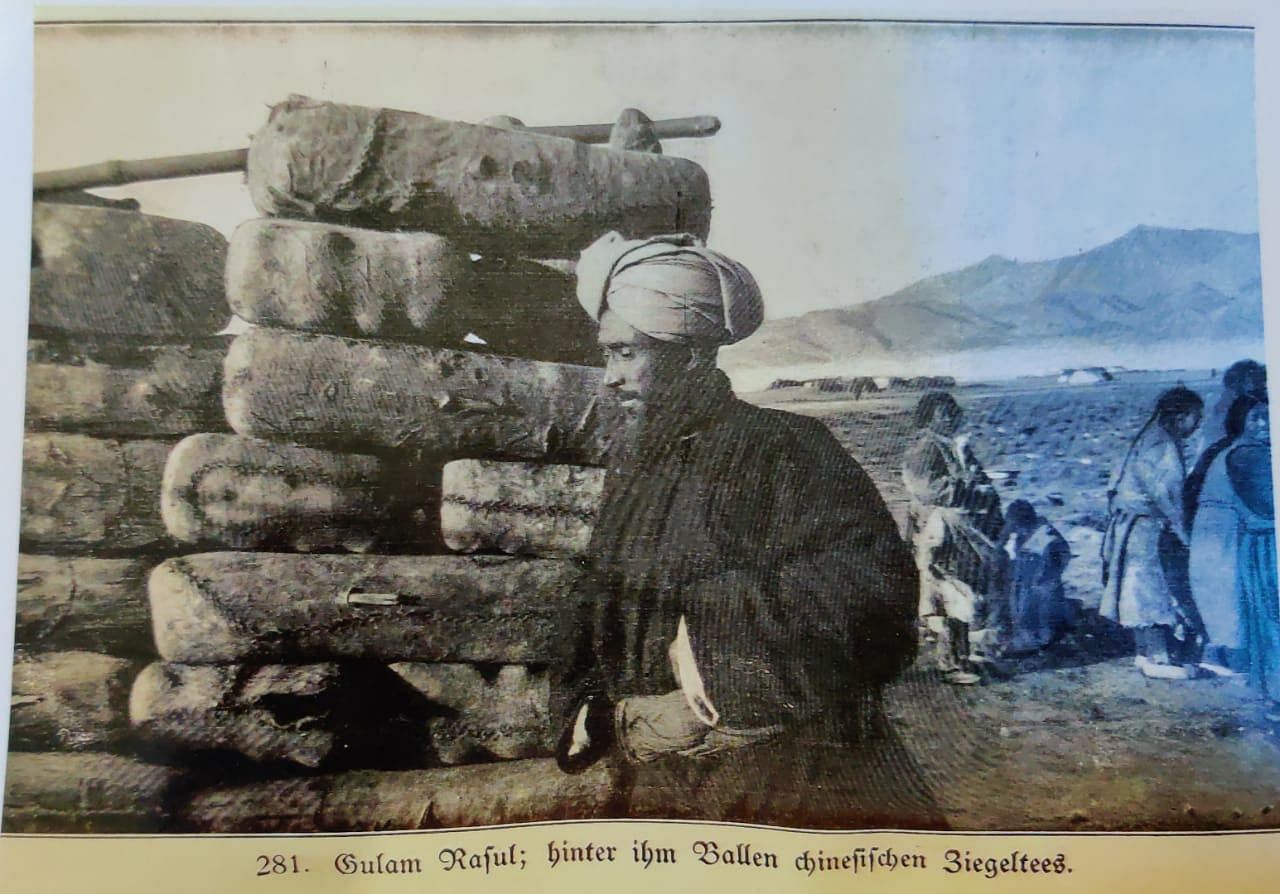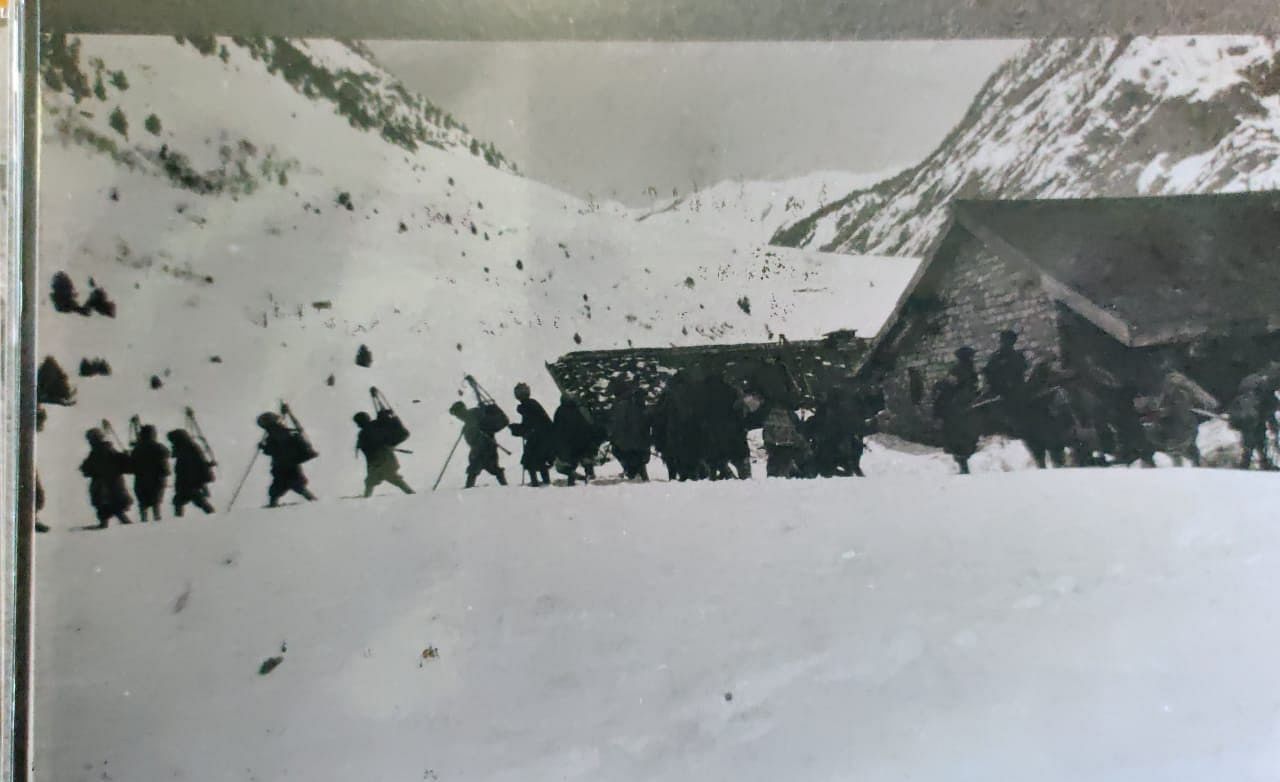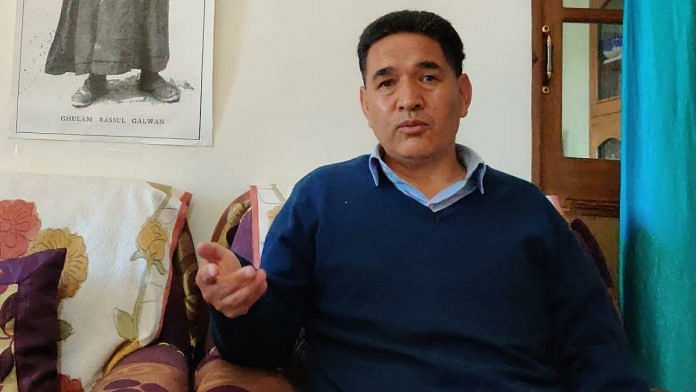Leh (Ladakh): Chinese claims on Galwan Valley in Eastern Ladakh mean nothing to Ghulam Nabi Galwan, 60, who says the valley named after his grandfather belongs, and will always belong, to India.
Galwan Valley, which lies along the western sector of the Line of Actual Control (LAC) in Ladakh, is the epicentre of the current border tensions between India and China.
In a conversation with ThePrint, Ghulam Nabi Galwan discussed how the British named the valley after his grandfather Ghulam Rassul Galwan (also spelt as Rasool Galwan) as a mark of gratitude.

He also talked about the family’s “history of conflict” with China, detailing an incident where a group of Chinese traders “nearly killed his grandfather” in the 19th century.
Also Read: China’s 1960 claim acknowledges Galwan Valley is India’s, says retired General Narasimhan
How Galwan Valley got its name
Born in 1878 in Ladakh, Rassul Galwan spent most of his early years in poverty. Armed with his love for the mountains, a young Rassul Galwan approached the British to take him along on their expeditions in the Himalayas.
According to Ghulam Nabi, Galwan was 14 when he approached British explorer Francis Younghusband.
“Britain and Russia were embroiled in the Great Game of the 19th century at the time. Younghusband recognised my grandfather’s talent despite his young age and made him a part of the Earl of Dunmore’s team going to explore the Himalayas,” said Ghulam Nabi Galwan, speaking to ThePrint at his sprawling resort, Siala guest house, in Leh.

During the expedition through the treacherous Himalayas, the group reached a point where they hit a dead-end in a huge wall of mountains. Adding to their problems, there was a heavy blanket of fog that hampered visibility.
“It was then that Dunmore asked my grandfather Rassul Galwan to find a way out. My grandfather took it up as a challenge and went off with two others and found a path to a valley where a river was flowing,” said Ghulam Nabi. “He went back to Dunmore and the group used the route to cross the mountains. It was then that a happy Dunmore named the river Galwan nallah, which later became popular as Galwan river and Galwan valley,” he added.
Also Read: In Ladakh’s Leh, people are caught between coronavirus and border tensions with China
‘Galwan Valley was always a part of India’
Late in the evening of 15 June, 20 Indian soldiers were killed in a bloody clash with the Chinese that followed the latter’s transgressions into Indian territory.
The deaths marked the first time since 1975 that soldiers had died during clashes on the India-China border. China has since claimed that Galwan Valley is a part of its territory, but the claim has been rejected by India, which says the position in the area is “historically clear”.
Ghulam Nabi is immediately dismissive of any Chinese claims on the area.
Like his grandfather, the valley named after him has always been a part of India too, he said.
“Galwan Valley doesn’t even share a border with China, it shares a border with Tibet. We have documents from the British gazettes to prove this,” he added. “Whether it’s the 1962 war or the 1971 war or Kargil or even the present conflict. Ladakhis have always stood by India and the Indian Army,” he said.
Also Read: India changes rules of engagement at LAC after Galwan Valley clash
Galwan family ‘flashpoints’ with the Chinese
The Galwan family, Ghulam Nabi told ThePrint, has had a history of conflict with China that goes beyond the present stand-off.
In his book ‘Servant of Sahibs: The Rare 19th Century Travel Account as Told by a Native of Ladakh’, Rassul Galwan detailed how he was attacked by Chinese traders in Leh.
A key trading point in central Asia at the time, Leh was frequented by traders from all around, including China and Afghanistan, Ghulam Nabi said.
“My grandfather had a disagreement with the Chinese and they started chasing him. At one point, he thought they were going to kill him but then he managed to talk his way out. He always believed in peace and not conflict,” he added.
Ghulam Nabi also claimed his brother-in-law, an intelligence officer, was captured by China’s People’s Liberation Army (PLA) in 1959 when he went to search for missing Indian soldiers around the Galwan Valley.
“Whether it’s my grandfather, or my brother-in-law or even the common man of Ladakh, my family has always had flashpoints with the Chinese,” he said.
Even so, he added, the “present conflict pains us because it is only hurting Ladakh”.
“We want this conflict to end so Ladakh can go back to its past glory, when it was part of the Silk Route,” he said. “That will be a befitting tribute to my grandfather and the valley named after him.”
Also Read: China’s claim on Galwan not in accordance with Beijing’s past position, says India




If i go and stay in chinese part of himalaya , stay for 50 days and named after my name (Damo). Does Domo valley belong to Nepal.
Chinese cannot be trusted is lesson learnt from 1962 slogan “Chini Hindi Bhai Bhai”. India trusts neighbours easily is the greatest mistake. Nepal living on Indian mercy showing eyes is intolerable. Rajiv Gandhi suitable taught lessons once. Let Nepal know its limitations and breach of loyalty. The importer must file declaration and affidavit the import is consumer goods are essential commodity and if found wrong must go jail for 6 months without bail and the custom authority found to permit such import in unholy alliance must meet same fate and loose job. India must stop the economic growth of China is the only best way to strengthen and consolidate own resources and technologies. Only raw material and machineries import should be permissible at lesser or nil duty to boost domestic productivity. Carrot and stick must be applied in strictest sense.